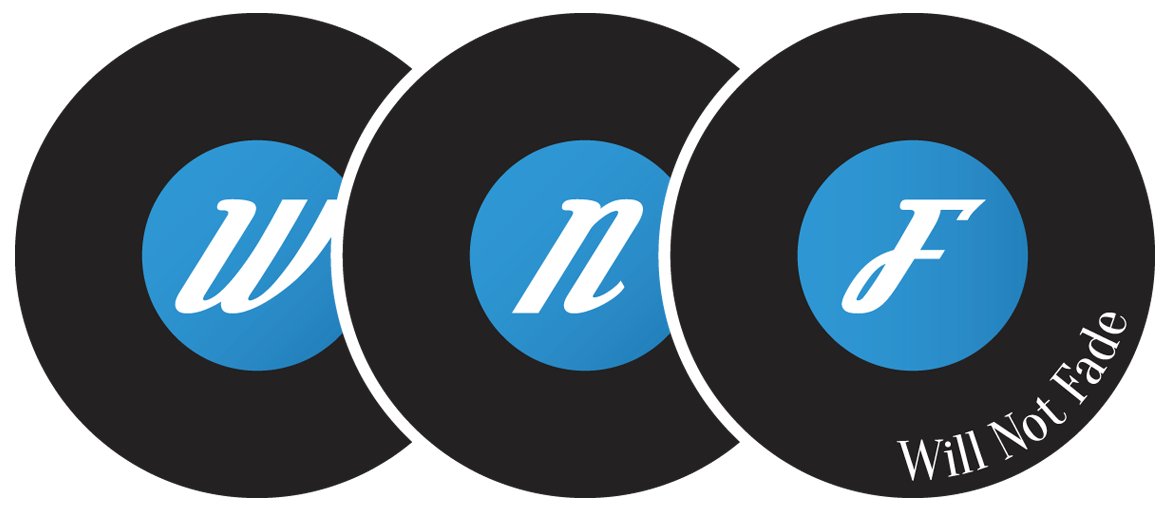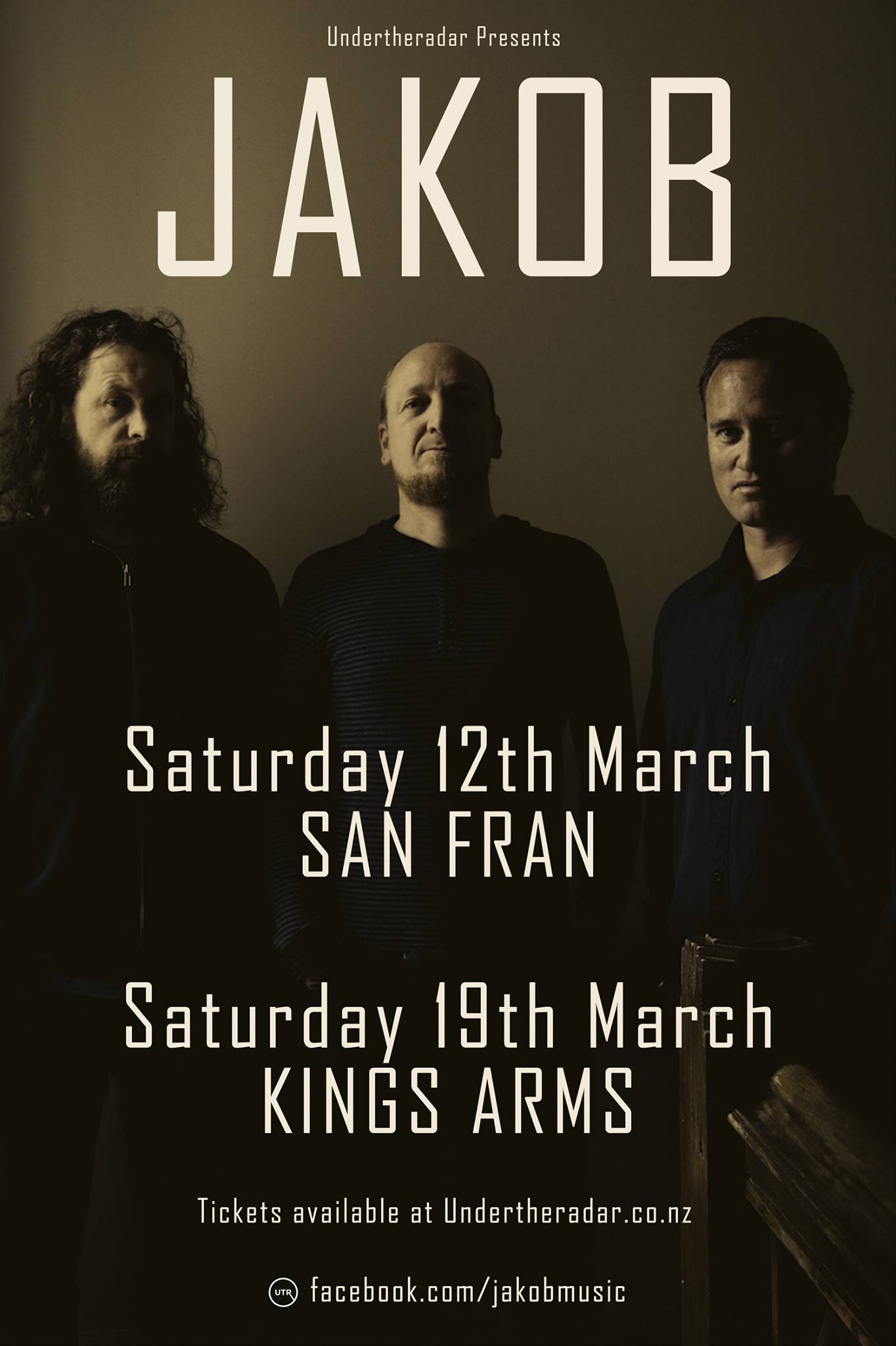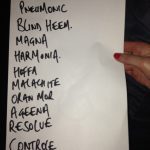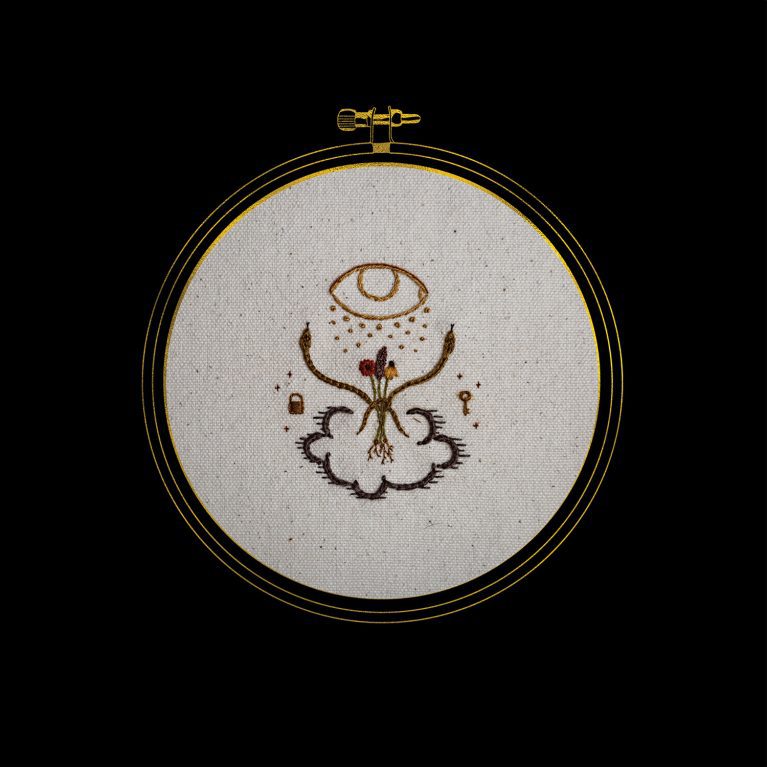 Solemn Sun are a fairly new band, reincarnated from their previous project Jim Lockey and the Solemn Suns. I was thoroughly impressed by their 2014 debut EP, § [here’s my review] and have eagerly waited for new material ever since.
Solemn Sun are a fairly new band, reincarnated from their previous project Jim Lockey and the Solemn Suns. I was thoroughly impressed by their 2014 debut EP, § [here’s my review] and have eagerly waited for new material ever since.
Now the wait is over. Solemn Sun have just dropped their new single, “Bloom”, an outing that shows a different side to the band. I tried to set up an interview, and despite being busy on tour with Crooks, frontman Jim Lockey found time to answer some of my questions.
Will Not Fade: Tell me about the decision to change your band name and sound?
Jim Lockey: We’d reached the end of where we could take the old band and we wanted to explore new avenues and new artistic freedoms that aren’t achievable when you’ve built a reputation that precedes you. I think we could have carried on making records like the old band but it would have been forced and false, we’ve never been about that. We need to believe 100% in what we’re doing, we love to create and constantly evolve as a band which is why we moved forward as §.
I live on the other side of the world, so have been unable to attend any shows that you’ve played in the past few years. I’ve read that you no longer play material from your previous era. So how do you manage to fill in a set when your recent release has just over 20 minutes worth of music? I can see that being enough for an opening set or festival slot, but what about your headlining tours?
We have more material than that of the EP. Things that we’ve been working on for some time now. Despite keeping a section of our previous name this is an entirely new project, it shifts between so many styles from song to song we have the opportunity to play anything we want as part of the set, this tends to include interludes of stand alone instrumental pieces as well as songs from the EP and new material.
What kinds of feedback have you been getting from old fans who liked your folky sound?
We’ve had a huge amount of support and its continuing to grow . I think if you were interested in our band before because of how that album sounded you’d feel a little out of touch with where we are now.
There was a lot of squealing guitar feedback on the last EP. Can we expect more of the same guitar heavy approach on the new release, or is it going to be more electronic sounding like on “Bloom”?
Its quite honestly shaping up to be an equal mix of both sides to our sound. We’re not too concerned with staying rooted in a particular genre for this band we just make music and if its good we put it out.
Tell me more about the new album. I’ve been following your Facebook posts, and it looks like you’ve had something in the works since at least April last year.
We’ve been solidly working on new material since the last EP. We’re very selective about the ones that make it out though and we’re In no rush to produce a full length record until its ready and we’re proud of how its shaped up. You can certainly expect drops of new music throughout this year that will hint towards where we’re headed.
Have you been trying anything new in the studio?
We like to not be your average guitar band and that’s certainly reflected in the way we produce our records. Taking a lot of influence from hip hop we use a lot of organic samples, looping and editing to give it texture as well as sound. Production can take a song in so many directions so we focus on it as much as we do writing the song.
From what I can tell, Xtra Mile are a great indie label who look after their artists. What prompted you to start istartedthefire? I assume your last EP was independently distributed, because I cannot find any info about record labels on it.
Istartedthefire was born out my want to support a number of artists that I really loved and thought weren’t been given the attention they deserved. Unfortunately the label has taken a back seat in recent years to focus on my own projects but I hope to bring it back soon with a fresh bunch of records. The Solemn Sun EP was self released and not part of ISTF. We’re going to continue down that path until we find someone who shares our vision for the future of the band, it gives us more control over it and means we can invest more in what we’re putting out.
How do you allocate your time between the band, the label, family, work etc…?
We all work extremely hard day to day so its difficult to juggle everything all the time and still make time for the band, we’re committed to it though and use any opportunity to write new stuff and plan ahead. Its calmer now working to our own timelines, so while we’re slower to release new music than full time bands we’re fully invested in what we make and have a stronger sense of achievement that we built it ourselves.

You started a label to support artists that deserve more attention. Here’s your chance to plug an underrated artist that readers need to hear.
There’s almost too many to name so I’ll choose Andy Oliveri, he’s a an amazing musician who released stuff on istf in the past. He’s been writing and recording new material for his 2nd album and its truly mind blowing, though its not planned for release until the end of the year there’s wonderful shades of early Radiohead in there that are great.
Your videos and press photos are all stark black and white grey scale. Even my vinyl copy of the latest record is a gorgeous grey/white/black splatter. How far does this black/white aesthetic extend? (Stage backdrops, instrument colours, the clothing you wear, merch etc?)
Its all black and white. Everything. It not only fits our music but it’s a good visual representation of our sound too, black and white, light and dark, mellow and heavy.

Speaking of the vinyl record, the inside sleeve bears striking resemblance to Deafheaven’s Sunbather album. Is this deliberate or coincidental?
We laid our logo out that way for the inner of the EP. We hate the idea of ripping someones creativity off for your own gain so I can assure you this was an unfortunate coincidence. The logo and icon were designed by a good friend of ours who based the concept on the idea of light and dark and the casting of shadows.
You have been able to tour with some incredible bands, and even played at the Olympic opening ceremony. What are your career highlights to date?
With this band, the highlight was releasing our first EP – for all we had to give up to pursue our new direction, and the time and effort we put into making it what it was.
Who is on your wish-list of artists that you’d like to tour or collaborate with?
I think we’d most like to be given the opportunity to play with bands that reflect each side of our influences, to have the chance to play in front of fans that don’t usually see guitar bands and rock fans that don’t listen to hip hop usually would be great. Collaboration wise it would be the same deal, we feel we can take this anywhere so if there is a chance to release songs with rappers and singers from other bands we’ll take it.
What are your upcoming plans?
Currently we’re working on new material for our next release and will be touring the UK before the end of the year, with a view to return to the EU next spring.
Solemn Sun are currently touring the UK supporting Crooks.
Solemn Sun: Bandcamp Facebook Instagram Twitter
Joseph James
 Lyrically, Abbott sounds unsure of herself and where she fits in, with lines like “I’ll just never be cool/ I’ll never be one of you”, and “I would kill to be one of the boys”. However she certainly sounds bolder, with more exciting playing, and stronger vocals than I’ve heard from her previously, verging on showing off with plenty of gorgeous “ooh’s” and “ahh’s”. It’s a bit of a dichotomy, with self-assured music disguising underlying insecurities. It is as Abbott says, “sugary, but when listening closely, unsettling.”
Lyrically, Abbott sounds unsure of herself and where she fits in, with lines like “I’ll just never be cool/ I’ll never be one of you”, and “I would kill to be one of the boys”. However she certainly sounds bolder, with more exciting playing, and stronger vocals than I’ve heard from her previously, verging on showing off with plenty of gorgeous “ooh’s” and “ahh’s”. It’s a bit of a dichotomy, with self-assured music disguising underlying insecurities. It is as Abbott says, “sugary, but when listening closely, unsettling.”












 Solemn Sun are a fairly new band, reincarnated from their previous project Jim Lockey and the Solemn Suns. I was thoroughly impressed by their 2014 debut EP, § [
Solemn Sun are a fairly new band, reincarnated from their previous project Jim Lockey and the Solemn Suns. I was thoroughly impressed by their 2014 debut EP, § [
